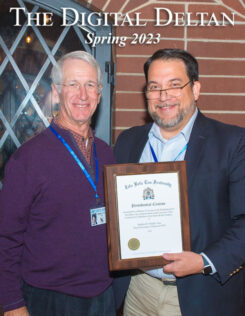Zeta Beta Tau Foundation
Leaving More to Family and to Charity
By Faron A. Lewitt — Issue: Spring 2018

Today more people participate in tax-favored retirement plans than ever before. While participants are committed to accumulating and growing these assets, few plan for the harsh tax consequences associated with retirement plan distributions — a tax of nearly 40 percent at the top rates. With that in mind, let’s consider some frequently asked questions concerning how you can use retirement plan assets to make charitable gifts which leaves more to heirs and the charities you love and support.
Aren’t retirement plans meant to provide a secure retirement? Is giving these assets away a good idea?
- Many fortunate executives and professionals have accumulated sufficient resources outside of their plans — enough that they no longer need the dedicated retirement plan funds for support during retirement.
- Retirement plan assets are highly taxed and cannot be distributed or transferred to heirs on a tax-free basis. Other savings and investments that have already been taxed can be transferred to heirs with no additional tax — some (appreciated stock or real estate, for example) with the bonus of a step-up in basis. Income taxes on retirement plan assets reflect the fact these funds have accumulated on a tax-deferred basis, with the IRS simply waiting until assets are distributed to “recoup its losses.”
- A planned gift of retirement assets to a qualified charitable organization can reduce or eliminate these taxes, while providing more for family members by allowing other assets to transfer free of tax. The key is integrating charitable giving with overall financial and estate planning.
We are certainly indoctrinated to save for retirement from an early age, and tax-favored retirement plans have an important place in accumulating savings for retirement. Still, there are good reasons to consider donating these funds. Learn more about making charitable gifts a part of a retirement plan.
Tax information provided herein is not intended as tax or legal advice and cannot be relied on to avoid statutory penalties. Always check with your tax and financial advisors before implementing any gift.
 Fall 2024
Fall 2024  Spring 2024
Spring 2024  Fall 2023
Fall 2023  Spring 2023
Spring 2023 